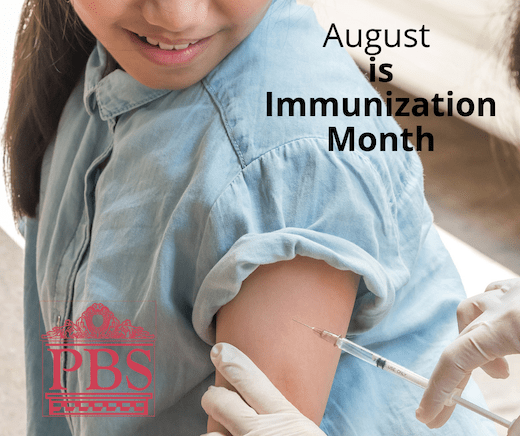August marks Immunization Month in the United States. As kids head to annual checkups for preparation to return to school and the sports check offs so that they can try out for teams, most Pediatricians, Family Medicine doctors and the teams of Nurses who treat children will help assure that their shot schedule is up to date.
Most of us know that we should get a flu shot every fall. But for people over the age of 19, it is easy to forget that there are a lot of other vaccinations to keep up to date in addition to the flu. And there is a less certain time that we would expect you to be seen by a health practitioner for preventive routine exams, making it more likely that adults will fall behind on vaccine schedules.
The Center for Disease Control publishes an easy to follow guide of vaccines for people over 19 and even spells out guidelines for people with specific pre-existing conditions from diabetes to end stage renal disease to the exciting time of pregnancy.
The great news about immunizations is that your preventive shots are covered by medical health insurance. The reasons for keeping your immunizations current include your own protection from preventable diseases, it protects children who are too young for some of the vaccines and it protects friends and family members who may be unable to take vaccines due to allergies, or other contraindications.
See how up to date you are by checking out the CDC guidelines here.
A Note About Children:
Since schools and colleges now require proof of immunizations to enroll, many kids 18 and under have followed the CDC schedule for children and adolescents. It is important to remember that anyone over 6 months of age should take the annual flu vaccine in addition to preventing the diseases on the tables.


Recent Comments